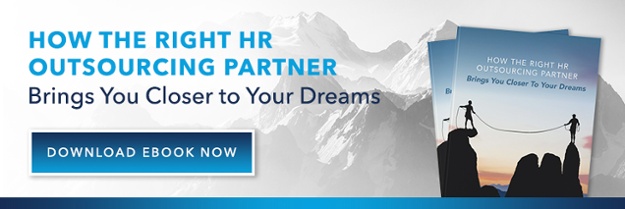Topic Outsourcing HR / PEO
How PEOs Solve and Prevent Common FLSA Violations
.jpg)
February 25, 2021 | By Jason Randall
.jpg)
The Fair Labor Standards Act (FLSA) lays out certain laws that employers must follow. Many of these center on wages and payment. As a business owner, you are familiar with exempt versus non-exempt employees. But the nuances of that distinction can present serious challenges and even result in hefty fines for misclassification.
Misclassifying an employee as exempt can not only embarrass your company; it also risks your bottom line. If your company is found to be in violation, you could face fines besides having to pay your employee for all of their missed overtime. You may also be required to pay both your portion and their portion of employment taxes. You could also face costly lawsuits from employees who have been underpaid. This mistake can bankrupt companies.
To avoid this, you can partner with a Professional Employer Organization (PEO). A trusted PEO can advise your company and help to keep you compliant, avoiding costly and embarrassing lawsuits and FLSA fines. This is just one of many reasons why businesses use a PEO.
Common FLSA Violations
With few exceptions, most employees and employers are subject to the FLSA. The FLSA is complex legislation that is not always easy to interpret. That leaves many small and mid-sized businesses grappling with tough decisions. Even innocent mistakes can be extremely costly.
There are many reasons why an employee could sue your business, or the FLSA could levy fines against your business. Here are the most common:
Misclassification
Improperly classifying an employee as exempt can have serious repercussions. The FLSA does not entitle exempt employees to overtime pay, minimum wage requirements, and other protections. To be an exempt employee, you must meet certain requirements. These tests can be confusing, and it is easy to misclassify an employee. Any violation, even innocent ones, can result in costly fines under the FLSA.
Payroll Records
Proper record-keeping requires that all employers keep certain records relating to payroll, including:
- Hours worked each day
- Hours worked each week
- Daily earnings
- Weekly earnings
- Total overtime
- Total wages
- Deductions
- Bonus pay
- Date of each payment
Failing to keep these records is a violation of the FLSA. Businesses must keep these records for at least three years.
Overtime
Both unpaid overtime and improperly paid overtime are FLSA violations. Some states have overtime laws that go above and beyond the federal overtime laws. This confusion can result in an employer failing to pay an employee their proper overtime wages. Underpaying overtime wages or simply not paying overtime at all is a violation of the FLSA.
Independent Contractors
Independent contractor relationships have benefits to both parties. The independent contractor is not tied to certain hours as a normal employee, and the business does not have to offer benefits. However, many businesses make the mistake of simply classifying someone as an independent contractor instead of an employee. As with exempt employees, there is a test to determine whether someone is an employee or an independent contractor. Violating this section of the FLSA can result in the employer having to pay back taxes, salary, and overtime, in addition to any fines and penalties.
Labor Law Changes
Employment laws change. Failing to keep up with those changes on a regular basis can be extremely costly for your business. Whether federal, state, or local, these labor laws change and affect your bottom line. Partnering with a PEO not only gives you access to labor law experts who can help you adjust to these changes, but these experts also have a pulse on the changes coming. This gives them insight to be able to act in advance of any changes, so your company is ready to implement adjustments the day the new laws go into effect.
How PEOs Prevent FLSA Violations
Besides reacting to possible FLSA violations, your PEO can help you outright prevent them. And that is the best way to avoid costly and embarrassing mistakes.
Your PEO will take several proactive steps to ensure your business stays compliant:
- Actively review and audit employee classification
- Ensure you correctly classify independent contractors
- Keep accurate and detailed payroll records, following FLSA requirements
- Create and update company handbook to ensure all employees understand wages, payroll, overtime, and exempt status
- Keep you and your company up to date on FLSA changes
- Implement strategies to keep your business compliant
You have enough to do as a small business owner. You lose enough sleep each night worrying about keeping your business moving. Shed some stress to a trusted PEO who can ensure your business stays compliant and avoids any FLSA violations.
.jpg)
Jason Randall
Jason L. Randall is the CEO of The Questco Companies. He regularly speaks on topics related to strategy, growth, and organizational performance.




